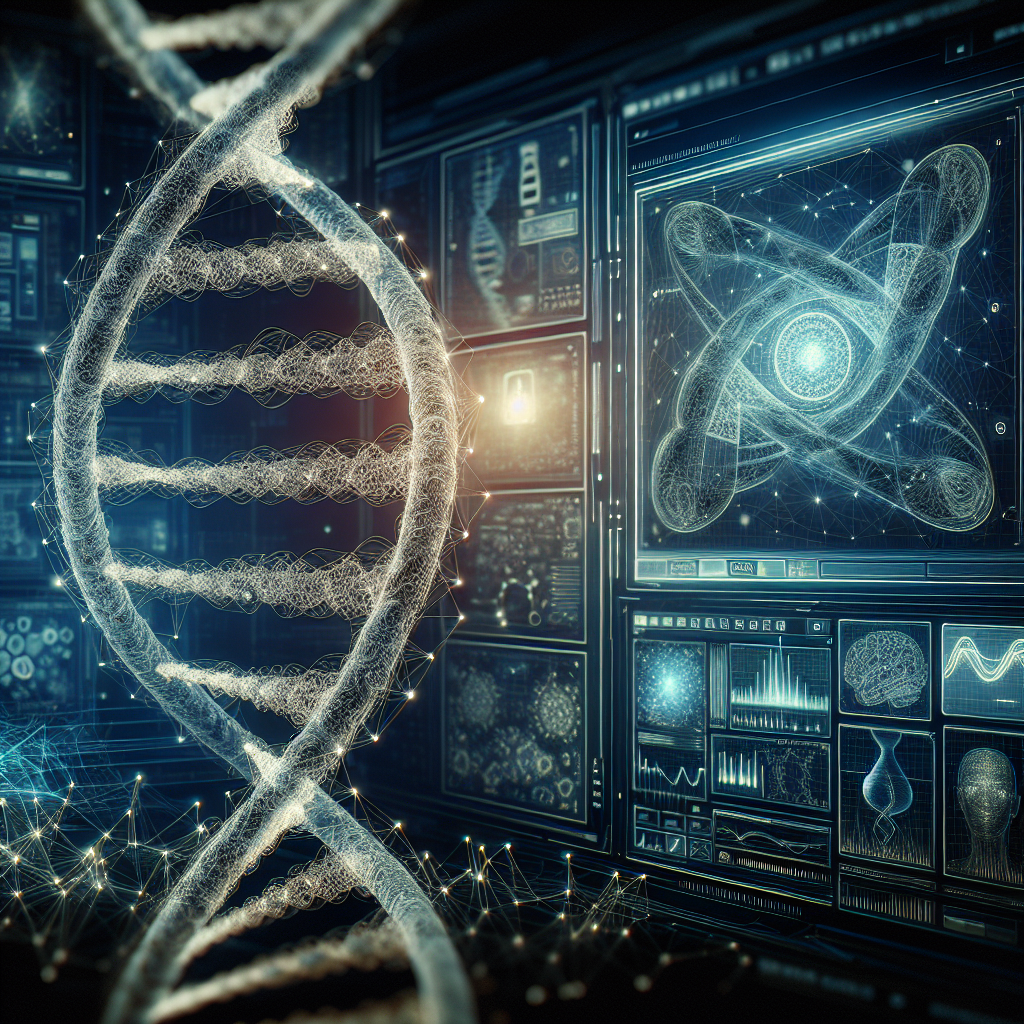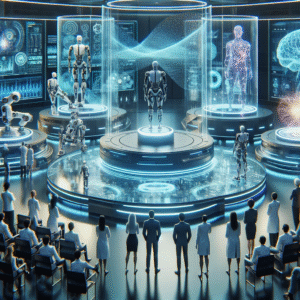Can Generative AI Uncover the ‘Language of Biology’?
In recent years, the intersection of artificial intelligence and biology has become a hotbed of innovation and research. With advancements in generative AI, scientists are beginning to explore how these cutting-edge technologies can decode the complex language of biology. This blog post delves into the implications of generative AI in understanding biological systems, its potential applications, and the challenges that may arise.
Understanding Generative AI
Generative AI refers to a class of artificial intelligence algorithms that can generate new content based on learned patterns from existing data. These models are trained on vast datasets and can produce anything from text to images and music. In the realm of biology, generative AI has the potential to analyze biological data, predict protein structures, and even simulate biological processes.
The Language of Biology: What Does It Mean?
Biology operates on a complex set of rules and patterns, much like a language. DNA sequences, for instance, can be thought of as a code that determines the development and functioning of living organisms. Researchers have long sought to decode this language to better understand genetic information, evolutionary patterns, and the mechanisms of diseases.
Generative AI could play a pivotal role in this endeavor. By analyzing vast amounts of biological data, these models could help uncover hidden patterns and relationships that were previously difficult to discern. This could lead to breakthroughs in various fields, including genetics, pharmacology, and ecology.
Applications of Generative AI in Biology
The potential applications of generative AI in biology are vast. Here are a few notable areas where this technology can make a significant impact:
1. Drug Discovery
One of the most promising applications of generative AI is in drug discovery. Traditionally, drug development is a lengthy and expensive process, often taking years or even decades. Generative AI models can analyze existing pharmaceutical data, predict how different compounds will interact, and suggest new drug candidates. By speeding up the discovery process, generative AI can potentially save valuable time and resources, leading to more effective treatments for various diseases.
2. Protein Folding Predictions
Understanding protein structure is crucial for many biological processes. The ability to predict protein folding accurately can help researchers design better drugs and understand diseases at a molecular level. Generative AI has demonstrated remarkable success in this area, with models that can predict protein structures with a high degree of accuracy. This breakthrough could revolutionize biomedical research and lead to new insights into how proteins function.
3. Personalized Medicine
Generative AI can also facilitate the development of personalized medicine, where treatments are tailored to an individual’s unique genetic makeup. By analyzing genetic data, these AI models can help predict how a patient will respond to specific treatments, allowing for more targeted and effective therapies. This approach not only improves patient outcomes but also minimizes potential side effects associated with traditional one-size-fits-all methods.
4. Understanding Evolutionary Patterns
Another exciting application of generative AI is in deciphering evolutionary patterns. By analyzing genetic sequences from various species, AI can help researchers understand how certain traits evolved over time. This could provide valuable insights into biodiversity and the mechanisms behind species adaptation and survival.
Challenges and Ethical Considerations
While the potential of generative AI in biology is immense, it is not without challenges. Here are a few critical issues that need to be addressed:
1. Data Quality and Availability
Generative AI models rely heavily on the quality and quantity of data for training. In the biological field, data can sometimes be sparse or inconsistent. Ensuring that high-quality, representative datasets are available is essential for the success of AI applications in biology.
2. Ethical Concerns
The use of AI in biology raises several ethical considerations, particularly concerning data privacy and consent. As researchers analyze genetic information, ensuring that individuals’ data is handled responsibly and ethically is critical. There must be robust frameworks in place to address these concerns and protect individuals’ rights.
3. Interpretability of AI Models
Generative AI models can sometimes operate as “black boxes,” making it difficult to interpret their decision-making processes. In biological research, understanding how a model arrives at a particular conclusion is crucial for validating its results. Researchers must focus on developing more interpretable models that can provide insights into their decision-making processes.
The Future of Generative AI in Biology
As we look ahead, the future of generative AI in biology appears promising. Continued advancements in AI technology, combined with an increasing understanding of biological systems, could lead to transformative breakthroughs in various fields. From drug discovery to personalized medicine and evolutionary biology, the potential applications of generative AI are vast and varied.
However, realizing this potential will require collaboration between AI experts, biologists, ethicists, and policymakers. By working together, we can navigate the challenges and ethical considerations associated with AI in biology and unlock new avenues for research and innovation.
Conclusion
Generative AI is poised to become a powerful tool in understanding the intricate language of biology. By leveraging this technology, researchers can uncover hidden patterns, make more accurate predictions, and ultimately advance our understanding of life itself. While challenges exist, the potential benefits of generative AI in biology are immense and could lead to significant advancements in health, medicine, and our overall understanding of the biological world.
As we move forward, it is essential to approach this technology thoughtfully, balancing innovation with ethical considerations to ensure that the benefits of generative AI are realized responsibly and equitably. The exploration of generative AI in biology not only represents a leap forward in research but also offers a glimpse into a future where technology and biology can work hand in hand to solve some of humanity’s most pressing challenges.



